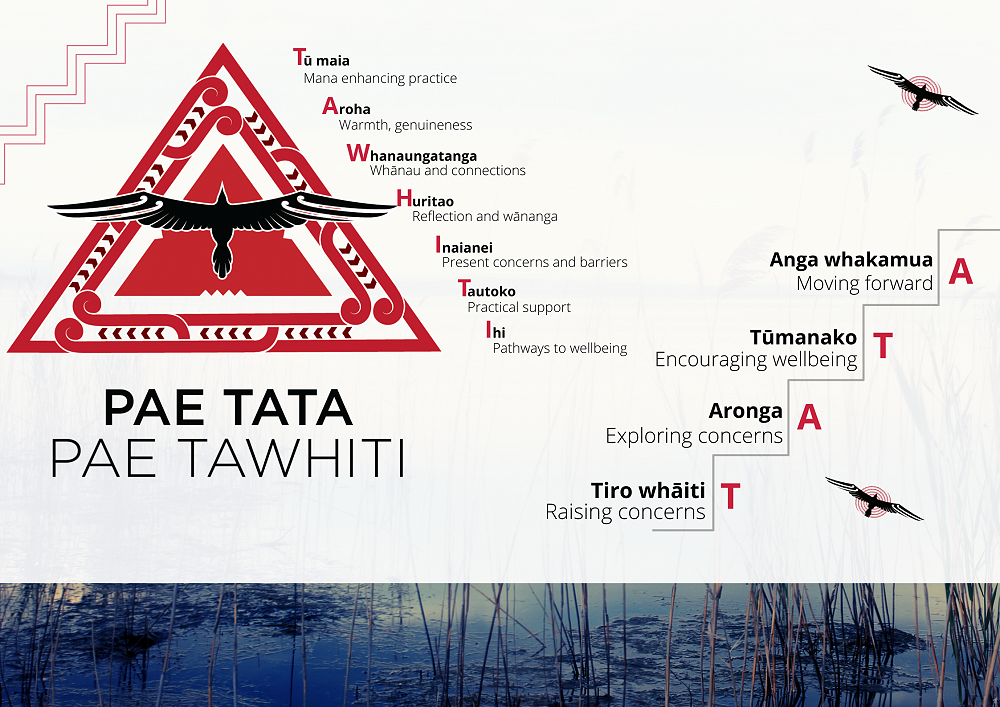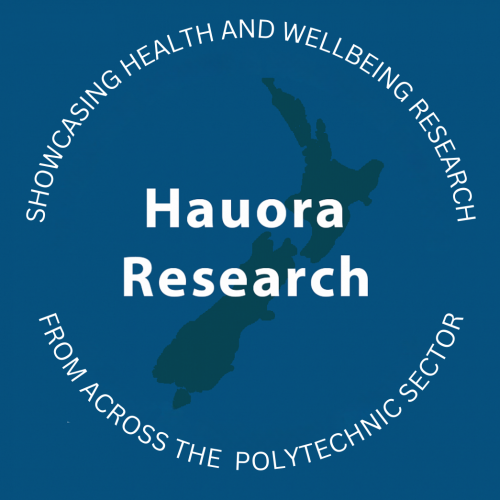
Maori-centred approach to brief interventions for mental health and addictions
WINTEC: A mātauranga Māori harm reduction framework is being rolled out across Aotearoa to support people with mental health and addiction issues.
Called Pae Tata, Pae Tawhiti, the framework applies Māori values and principles within oranga huanui, or healing pathways, to create wellbeing for Māori.
It was developed after Dr Andre McLachlan from WINTEC and Dr Waikaremoana Waitoki from Waikato University successfully responded to the Ministry of Health’s call for registrations of interest (ROI) for Mental Health Brief Interventions. The development of Pae Tata, Pae Tawhiti was also supported by Te Rau Ora1 and Whare Tukutuku.
“Pae Tata, Pae Tawhiti is intended as a guide for kaimahi Māori who work in a range of settings such as Whānau Ora, primary health and social services,” McLachlan says. “The framework provides steps for engaging with tangata whaiora who present with alcohol and other drug concerns, and/or mild to moderate mental health concerns.”
Reducing the over-representation of Māori who experience harm from waipiro (alcohol), tarukino (drugs) and mental health concerns requires a reorientation towards Māori-centred practice, McLachlan says, and this was the focus behind the project.
“As an early intervention, harm-reduction focused framework, Pae Tata, Pae Tawhiti offers a pathway to wellbeing that acknowledges the mana and rangatiratanga of Māori as individuals and as members of whānau, hapū and iwi.”
Pae Tata, Pae Tawhiti is an acronym-based system that outlines a step-by-step early intervention approach.
Pae Tata (Tiro whāiti, Aronga, Tūmanako, Anga whakamua) outlines the first steps for exploring identified concerns, discussing these and creating a plan to respond. It is also about building upon people’s strengths.
Pae Tawhiti (Tū maia, Aroha, Whanaungatanga, Huritao, Ināianei, Tautoko, Ihi) refers to the values and principles required to provide a strong foundation to assist whānau to achieve whakaora (healing).
“Each intervention begins by screening quite broadly to identify what is happening for the person, before focusing on and exploring these issues,’ he says. “This is important because there is strong evidence that a summative approach to screening is ineffective at picking up risk.”
The next aspect is looking at what the person would like to change and encouraging them to work through any challenges.
“Not everyone wants to change, and some people who do want to change may not necessarily engage in treatment. Change and treatment can take a lot of work,” McLachlan says. “So, it’s about identifying their hopes and aspirations – determining what the person is working towards that will provide them with the strength they need to engage.”
From there, practitioners and tangata whaiora identify a path forward and develop a plan to achieve change.
“This is a therapeutic approach to early intervention that guides ongoing wellbeing,” McLachlan notes.
A dedicated website, practice manual, online training packages and demonstration videos guide practitioners in applying the framework. Furthermore, there is an app currently under development. This investment in technology and resources allows practitioners to access the framework and training from anywhere in the country, in their own time and at their own pace.
McLachlan hopes the framework will be a valuable tool for practitioners working in the community.
“Most of the literature talks about a brief psychological intervention being done by a highly trained psychologist, so it's not really what people can do in the community,” he says. “Pae Tata, Pae Tawhiti helps to address this by providing the principles to guide the practitioner as they work with tangata whaiora, and outlining the steps for them to work through to support tangata whaiora on a pathway to wellbeing.”
- Dr Andre McLachlan (PhD; PGDipClinPsych; PGDip HealthSci) is a Clinical Psychologist based in the Waikato, with whakapapa to Ngāti Apa and Muaūpoko. Andre has worked within mental health and addictions for 30 years, working predominantly within Māori mental health. Andre is currently part of the team in Te whānau whakangungu at Te Rau Ora; and teaching Mental Health and Addictions across programs at the Waikato Institute of Technology (WINTEC). Andre is passionate about creative and innovative approaches to working with tangata whaiora and their whanau. This includes the development of practice tools and approaches such as He Puna Whakaata (Whai Tikanga Cards) and Whiti te Rā. Contact Andre McLachlan
- Visit Wintec
